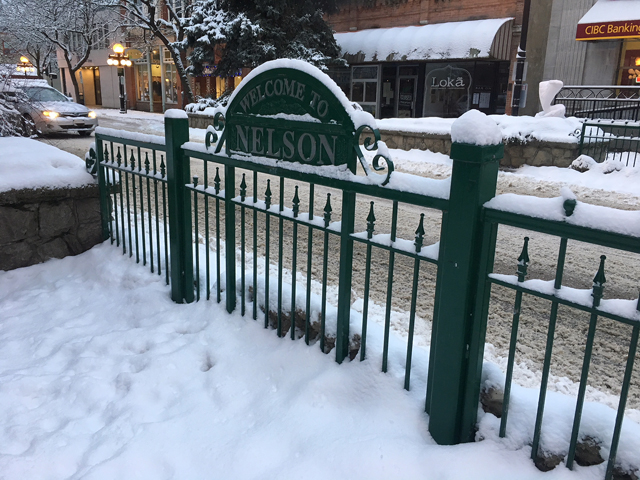Water, sewer and garbage collection rates set to rise in 2020
Several utility rates are expected to increase with inflation next year as the city continues to rebuild and reinforce its infrastructure.
The city is proposing atwo per cent increase in water rates and a 1.5 per cent increase in sewer rates for the coming year — subject to final approval — and an increase of $5 to the flat fee for collection of recycling and garbage.
The rates, and the reason for the increases, had already been debated in council chambers in pre-budgetary discussion, noted Coun. Brittny Anderson, when they appeared on the docket Monday night during city council’s regular meeting.
As a result, the first three readings passed quickly on the legislation.
With major sewage treatment plant improvements required, the city is expected to keep the 2019 reallocation of rates between sewer and water utilities in place, wrote city chief financial officer Colin McClure in his report to council on Monday night.
“This is being done in order to build the sewer reserve in order to assist in funding the expected future significant capital upgrades while keeping both the utilities fees at inflationary increases going forward,” he said.
In a previous meeting council expressed concern about running into “financial challenges” due to the regional district’s Central Resource Recovery service increasing tipping fees by 10 per cent to $110 per tonne, and the “unknown equipment and labour costs of implementing the new ‘blue can’ recycling collection with the new truck.
Those concerns translated into a $5 increase to the flat fee with the annual charge per household for collection of recycling and garbage moving to $45. The charge per garbage bag tag for disposal was set at $1.50, the same as in 2019.
“It is staff’s opinion that the City of Nelson, through picking up both garbage and recycling at the same time on a bi-weekly basis is one of, if not the most, efficient and cost effective environmental health service program in the province for a community of our size,” noted McClure in his report to council.
The way the city collects and disposes of its waste will change, predicted Mayor John Dooley.
“I’m not sure we are ahead of the game when it comes to waste and how we manage our waste. We’ve learned that, over the last 12 months, that we are well behind the curve,” he said. “Our solution to it on most days … is to just keep doing the same old thing.
“But this council is really committed to taking a good, hard look at how we manage waste going forward.”
Cash infusion
The flat fee increase is expected to cover the projected cost increase for Environmental Health Services operating and capital costs for 2020.
The fee increase will collect an estimated $287,000 in fees — including tags and the annual flat fee — which calculates to $71 per household annually.
The city pays additional fees to the regional district as part of the Central Waste Service for disposal of waste and to fund the regional district’s recycling program.
In 2018, the city paid $58,216 in tipping fees to the regional district and in 2019 the RDCK collected $995,038 in taxation from city residents and businesses.
— Source: City of Nelson
Water usage dropping
The ongoing work on the city’s water delivery system is continuing to pay dividends.
Per-capita usage is dropping and there is a continued decline in thetotal overall water usage, as well as a drop in the average winter usage, which staff feelrelates to the ongoing leak detection and repair work, noted McClure in his report to council.
“With the cooler and wetter summerin 2019 there was a drop in the maximum use days value this year when compared overthe past two years where the summer heat waves and drought like conditions were afactor,” he said.
A plan for sewer
A request has been made to provide funding to have an update on the 10-year-old Sewer Master Plan completed.
A review of the current location and model of the sewage treatment plant could be done to determine if the location and style of treatment at the facility — considering many new technologies — can change.
“Part of the previous year’s discussion revolved around the recent significant increase in the strength of effluent being handled at the plant and that a major upgrade would be required,” McClure said.
“In 2019, staff have been doing research and analysis on where the high strength effluent was coming from, as well as working with certain businesses in trying to pre-treat the effluent before it enters the city’s sanitary sewer system.”
The analysis will continue and a report back on the progress and future plans are expected in 2020.
Capital upgrades for 2019 and 2020:
Water system
- In 2018, the city received the news that the grant application to the Strategic
Priorities Fund for a $6 million government grant was approved.
The grant is to cover 100 per cent of the cost of bringing the water from both Anderson and Selous creeks to the Mountain Station reservoir for treatment.
Detail design work started in 2019 with the plan that it will be completed in early spring of 2020. With the design completed, the step in 2020 is bringing Selous Creek down the rail trail right away and up to the reservoir.
This is budgeted at a cost of $2,925,000 and will at times restrict the public access to the rail trail.
The remaining work is to be phased in over the next three years. This project will also assist the city with creating infrastructure that would be necessary to access a secondary source of water that is currently being investigated.
- The city was successful in replacing 600 metres of water lines in 2019 with the plan in 2020 to replace another one kilometre.
A major project for spring of 2020 is the replacement of the waterline on Anderson Street from the Shell gas station to the 7-11.
“Considering how busy this area can be for traffic this work has been contracted out in order to tackle this project as quickly as possible,” noted McClure.
From 2005 to 2019 the city has replaced 25 km of the 90 km (28 per cent) of water lines.
- A portion of the testing and planning work required by Interior Health Authority (IHA) for the emergency water source intake was completed in 2019.
The plan for 2020 is to complete that work as well as undertake a capital project to extend the current water intake deeper into the lake to help ensure the best quality of water being sourced if the system is ever needed.
Sewer system
- Despite missing out on a Canada Infrastructure program grant the city will undertake an update on the Sanitary Sewer masterplan.
The plan is to also have consultants look at the current sewage treatment plant and sewer force main set up and discuss options or whether a different model would suit the city in the future.
- There was a successful relining of three kilometres of sanitary sewer mains this year, with a plan in 2020 to add 450 metres of sewer line from the reservoir down to the connection at the Mountain Station parking lot.
“Going forward, staff have recognized that the amount of sewer main that can be relined is slowing and that the plan will be to do relining every other year,” McClure explained.
- From 2005 to 2019 the city has relined or replaced 30.1 km of the 85 km (35 per cent) of sewer mains.
“Due to improvements to the sewer lining process and a significant increase in competition for relining work, the city has experienced very competitive pricing that has been up to 60 per cent lower than estimated in the sewer master plan,” McClure said in his report.
- One major accomplishment in 2019 was the completion of the construction of the grit chamber and surge tank down at the airport lift station.
“With some of the micro rain bursts storms the city experienced this summer the surge tank handled this increased flow and kept the system from overflowing,” the staff report noted.
— Source: City of Nelson


























